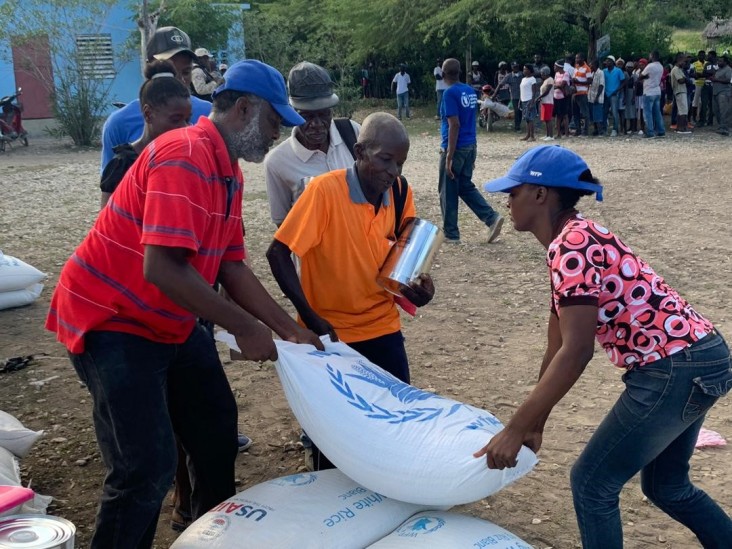- What We Do
- Agriculture and Food Security
- Democracy, Human Rights and Governance
- Economic Growth and Trade
- Education
- Environment and Global Climate Change
- Gender Equality and Women's Empowerment
- Global Health
- Humanitarian Assistance
- Transformation at USAID
- Water and Sanitation
- Working in Crises and Conflict
- U.S. Global Development Lab
Speeches Shim

Latest Haiti Fact Sheet
2020_09_30 - USG Haiti Complex Emergency Program Map ![]() (pdf - 5 MB)
(pdf - 5 MB)
Key Developments
While the UN reports a decrease in the number of daily recorded coronavirus disease (COVID-19) cases since late May, the pandemic continues to disrupt the provision of medical services in Haiti’s health care institutions—which faced shortages of equipment, medicine, and staff before the pandemic—and constrain access to infant and child health care services and routine immunization for polio and measles. The Government of Haiti (GoH) and UN are prioritizing COVID-19-related health care, surveillance, and water, sanitation, and hygiene activities to curb disease spread.
Households in each of Haiti’s 10 departments are projected to experience Stressed—IPC 2—or Crisis— IPC 3—levels of acute food insecurity from October to January due to increased prices of imported food, reductions in local food supplies, and the economic impacts of the COVID-19 pandemic, the Famine Early Warning Systems Network (FEWS NET) reports. While the supply of imported food staples remains steady, COVID-19-related border restrictions have increased food prices, contributing to financial strain on poor households facing income losses due to lower agricultural yields, below-average remittances as of September, and the secondary economic effects of COVID-19 containment measures.
Tropical Storm Laura struck Haiti on August 23, causing floods, heavy rain, and strong winds that resulted in the deaths of at least 31 people and damaged or destroyed nearly 9,000 homes, the UN reports. The storm also caused significant damage to roads and bridges, restricting access to many affected areas—particularly in southern Haiti—into September. In response, the GoH—in coordination with UN agencies—distributed food kits, shelter kits, and water purification tablets to affected populations.
Background
Haiti’s endemic poverty and civil unrest—combined with recurring shocks from natural disasters, including droughts, earthquakes, floods, and hurricanes—have resulted in food insecurity and other humanitarian needs throughout the country. Since the January 2010 earthquake and October 2010 cholera outbreak, USAID has focused both on providing immediate response to affected populations and on supporting disaster risk reduction (DRR) programs that promote local and national self-sufficiency in disaster preparedness, response, and management. Since 2010, USAID has provided approximately $186 million to support stand-alone DRR programs throughout Latin America and the Caribbean, including nearly $32.2 million in funding to support DRR efforts in Haiti. In addition to stand-alone DRR programs, USAID contributed nearly $133 million to support programs integrating preparedness and mitigation activities into early recovery and transition programs in response to the January 2010 earthquake and subsequent cholera outbreak in Haiti.
Since 2011, USAID has supported the International Organization for Migration to pre-position emergency relief supplies in the event of disasters, as well as to develop Government of Haiti personnel capacity to manage facilities and deploy supplies when necessary. Pre-positioning relief commodities—including plastic sheeting, hygiene kits, and water containers—ensured that relief supplies were available for distribution to affected populations immediately following Hurricane Matthew in October 2016, and Hurricane Irma in September 2017.
In recent years, USAID has deployed Disaster Assistance Response Teams to Haiti following Hurricane Matthew and Hurricane Irma to conduct disaster assessments and coordinate response activities with the GoH and humanitarian organizations.

Comment
Make a general inquiry or suggest an improvement.